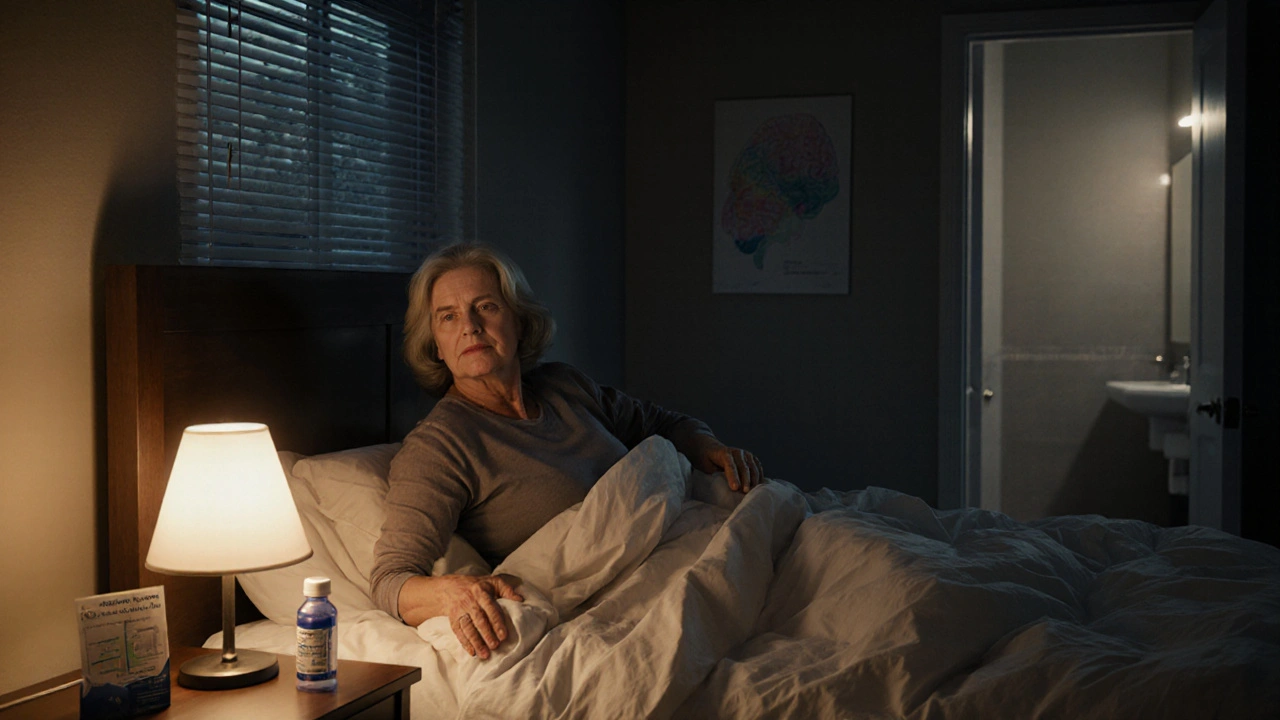Understanding Nocturia: Why You Wake Up at Night to Pee
When dealing with nocturia, the need to wake up one or more times during the night to urinate. Also known as nighttime polyuria, it can disrupt rest and signal underlying health issues. Most people think a single trip is harmless, but frequent awakenings can erode sleep quality, increase fall risk, and mask conditions like diabetes or heart failure. Below we break down the main pieces that feed into nocturia and how you can start tackling them.
One of the biggest contributors is overactive bladder, a condition that causes sudden, strong urges to urinate. When the bladder muscles contract too early, the body sends an alarm even if there’s only a little urine left. This pressure often spills over into the night, especially if bladder control is already weakened by age or prostate enlargement. Recognizing that nocturia frequently coexists with overactive bladder helps you target both symptoms together.
Another key player is fluid intake, the total volume of liquids you drink each day. Drinking large amounts of water, caffeine, or alcohol in the evening fills the bladder right before bedtime, setting the stage for nightly trips. It’s not about stopping hydration—just timing it. Shifting most of your fluids to earlier in the day can lower nighttime urine production without risking dehydration.
How Lifestyle and Medications Shape Nighttime Urination
Beyond fluids, sleep disturbance, any factor that interrupts normal sleep cycles plays a two‑way street with nocturia. Waking up to pee breaks deep sleep, leading to daytime fatigue, which in turn can increase stress hormones that heighten bladder activity. Breaking this loop often starts with improving sleep hygiene—dark rooms, consistent bedtime, and limiting screens.
Medications add another layer. Diuretics, blood pressure pills, and even some antidepressants can boost urine output or relax the bladder muscles. Timing is crucial: taking a diuretic earlier in the afternoon rather than at night can reduce the volume hitting the bladder while you’re trying to sleep. Always discuss timing tweaks with your doctor before changing a regimen.
Age‑related changes also matter. As we get older, the kidneys filter more fluid at night, and the bladder’s capacity shrinks. This natural shift means older adults often experience more frequent nocturnal voids. Yet, simple adjustments—like pelvic floor exercises, bladder training, or low‑dose anticholinergic meds—can make a noticeable difference.
Now that we’ve mapped out the main forces—overactive bladder, fluid habits, sleep quality, and medication timing—think of nocturia as a symptom with multiple causes rather than a stand‑alone problem. This perspective guides you to a layered approach: evaluate your drinking schedule, review any meds that might be affecting urine output, and consider whether an underlying bladder condition needs treatment.
Practical steps you can start today include:
- Cut caffeine and alcohol after 5 pm.
- Limit evening fluids to 1‑2 cups.
- Schedule a bathroom break right before bed.
- Check with your doctor about adjusting diuretic timing.
- Practice pelvic floor strengthening exercises three times a week.
In the collection that follows, you’ll find articles that dive deeper into each of these areas. From managing fever in autoimmune diseases (which can indirectly affect bladder function) to safe ways to buy medications like Darifenacin for overactive bladder, our guides give you detailed insights and actionable advice. Explore the posts to build a personalized plan that puts you back in control of your nights.

How Head Injuries Lead to Nocturia: Causes, Diagnosis, and Management
Explore why head injuries often cause nighttime urination, how to diagnose the link, and practical steps to manage nocturia after a brain injury.
